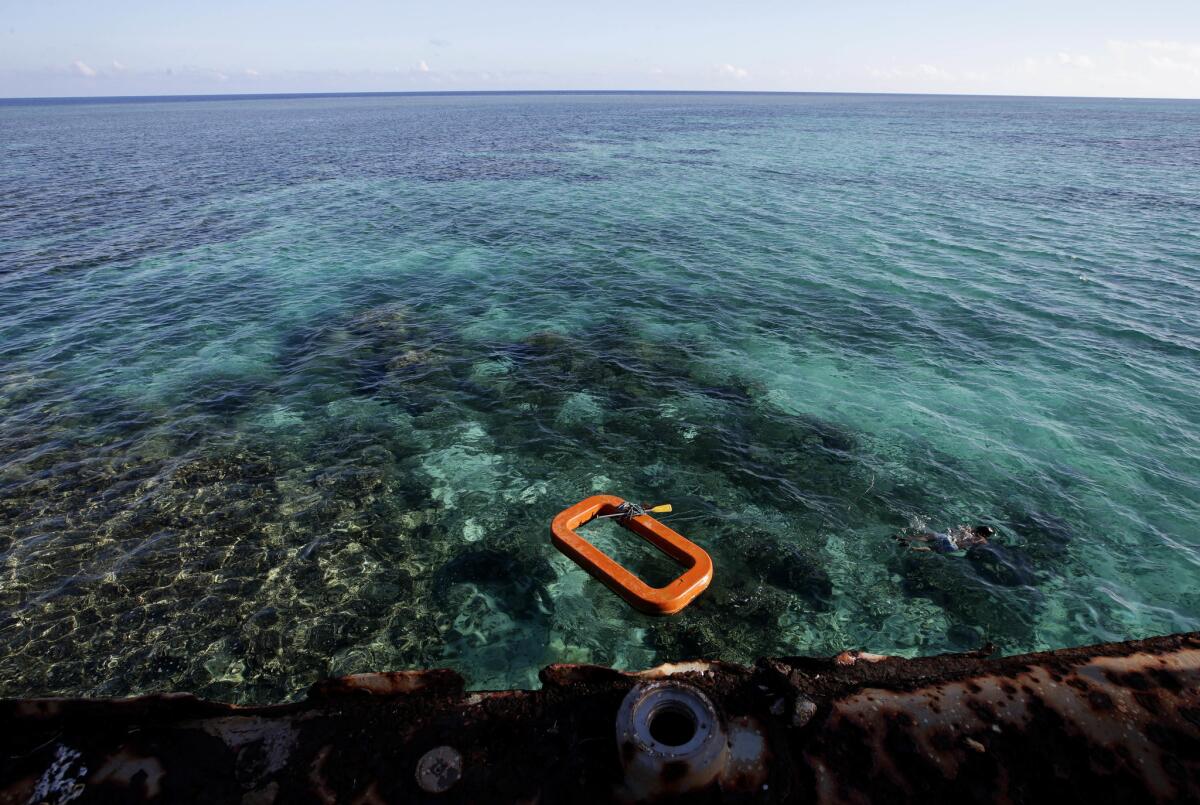When does a rock become an island? It’s a key to the South China Sea case

- Share via
Is it an island, a rock or a low-tide elevation? Those seemingly arcane issues are at the heart of the case that an international tribunal decided Tuesday when it said China’s claims to disputed parts of the South China Sea are invalid.
Here are the definitions behind that decision:
Low-tide elevation: A land mass above water only at low tide. Outside an existing territorial sea it is not entitled to a separate maritime zone.
Rock: A land mass permanently above water but unable to sustain human habitation or economic life on its own. It is entitled to a territorial sea and contiguous zone, but not an exclusive economic zone – which can extend for 200 nautical miles -- or continental shelf rights.
Island: A land mass permanently above water that can sustain human habitation or economic life on its own. It is entitled to a territorial sea, contiguous zone, exclusive economic zone, and continental shelf rights.
ALSO
China’s claims in South China Sea are invalid, tribunal rules, in victory for the Philippines
International court’s ruling in South China Sea case won’t end the fight
Timeline: South China Sea: A look into the rising tensions
More to Read
Sign up for Essential California
The most important California stories and recommendations in your inbox every morning.
You may occasionally receive promotional content from the Los Angeles Times.









